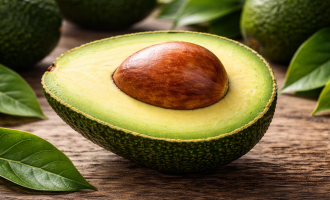Lemons are not only fragrant and delicious fruits but also a real treasure trove of health-promoting nutrients. This citrus fruit is widely used in cooking and medicine thanks to its unique properties. In this article, we’ll take a closer look at the health benefits of lemons, their juice, and zest, share some fascinating stories, and present the most famous dishes made with them.
What are the health benefits of lemons?
Lemons are rich in vitamins and minerals that are essential for maintaining good health. The main benefits of lemons include:
- Source of Vitamin C. Lemons contain a high concentration of vitamin C, which strengthens the immune system, helps fight infections, and promotes wound healing.
- Antioxidants. Lemons are rich in antioxidants that protect body cells from damage caused by free radicals.
- Fiber. The fruit contains dietary fiber that improves digestion and helps lower cholesterol levels.
- Potassium. The high potassium content in lemons supports heart health and helps regulate blood pressure.
| Indicator | Amount per 100 g |
|---|---|
| Calories | 29 kcal |
| Proteins | 1.1 g |
| Fats | 0.3 g |
| Carbohydrates | 9.3 g |
| Dietary fiber | 2.8 g |
| Sugars (glucose, fructose, sucrose) | 2.5 g |
| Water | 88.9 g |
| Ash (minerals) | 0.4 g |
| Macronutrients | |
| Potassium (K) | 138 mg |
| Calcium (Ca) | 26 mg |
| Magnesium (Mg) | 8 mg |
| Phosphorus (P) | 16 mg |
| Sodium (Na) | 2 mg |
| Sulfur (S) | 8 mg |
| Chlorine (Cl) | 9 mg |
| Micronutrients | |
| Iron (Fe) | 0.6 mg |
| Zinc (Zn) | 0.06 mg |
| Copper (Cu) | 0.04 mg |
| Manganese (Mn) | 0.03 mg |
| Iodine (I) | ≈1 µg |
| Selenium (Se) | 0.6 µg |
| Fluoride (F) | ≈3 µg |
| Vitamins | |
| Vitamin C (ascorbic acid) | 53 mg |
| Vitamin A (retinol eq.) | 1 µg |
| Beta-carotene | 3 µg |
| Vitamin B1 (thiamine) | 0.04 mg |
| Vitamin B2 (riboflavin) | 0.02 mg |
| Vitamin B3 (niacin) | 0.2 mg |
| Vitamin B5 (pantothenic acid) | 0.2 mg |
| Vitamin B6 (pyridoxine) | 0.08 mg |
| Folic acid (B9) | 11 µg |
| Vitamin E (tocopherol) | 0.15 mg |
| Vitamin K (phylloquinone) | 0.0–0.2 µg |
| Organic acids and other compounds | |
| Citric acid | ≈4.9 g |
| Malic, tartaric, and other acids | total ≈0.2–0.5 g |
| Pectins | ≈0.6–1.0 g |
| Limonene (main aromatic compound) | trace — up to several mg |
| Flavonoids (naringin, hesperidin, etc.) | up to 20 mg |
| Phenolic compounds | up to 50 mg |
| Nutritional and technological notes | |
| Acidity (approximate) | pH ≈2.0–2.6 |
| Energy density | low (high water content, low calories) |
What are the benefits of lemon juice?
Lemon juice is not only a refreshing drink but also a powerful tool for maintaining good health:
- Improves digestion. Lemon juice stimulates gastric juice production, improving digestion and aiding body detoxification.
- Hydration. Mixing lemon juice with water helps hydrate the body more effectively and restore electrolyte balance.
- Weight loss. Lemon juice boosts metabolism and helps control appetite, which may contribute to weight reduction.
- Antibacterial properties. Lemon juice has antiseptic effects, helping fight bacteria and viruses.
What are the benefits of lemon zest?
Lemon zest, often discarded, also offers numerous health benefits:
- High in vitamins. The zest is rich in vitamins C and A, which improve skin condition and strengthen the immune system.
- Essential oils. Lemon zest contains limonene — an essential oil with anti-inflammatory and antibacterial properties.
- Pectin. This type of fiber found in the zest helps lower cholesterol and supports digestion.
- Antioxidants. Lemon zest contains flavonoids that protect body cells.
Interesting stories about lemons

Lemon vs. scurvy. In the 18th century, British sailor James Lind discovered that lemons could prevent scurvy — a disease caused by vitamin C deficiency. Since then, British sailors always took lemons on long voyages, earning them the nickname “Limey” (from “lime” — a close relative of the lemon).

Lemon and the French Revolution. In 17th-century France, lemons were considered a symbol of luxury and were available only to the upper class. Madame de Pompadour, mistress of Louis XV, was famous for her love of lemons and used them in her beauty treatments.
The most famous lemon dishes
Lemons are used in many culinary recipes around the world. Let’s look at some of the most famous dishes:
Lemon Meringue Pie
This dessert combines tangy lemon curd and sweet meringue on a crispy crust. It’s one of the most popular desserts in American and British cuisine.
Lemon Curd
A thick cream made from lemon juice, sugar, eggs, and butter, used as a filling for cakes, pies, and pastries.
Italian Lemon Chicken (Pollo al Limone)
Chicken cooked with lemon juice and herbs — a classic dish of Italian cuisine.
Greek Lemon Soup (Avgolemono)
A Greek soup made from chicken broth, eggs, and lemon juice. It has a unique flavor and creamy texture.
Preserved Lemons
In North African cuisine, salted lemons are widely used, adding a distinctive aroma and taste to dishes.
Find more delicious lemon recipes on our blog.
Lemons are not only an excellent source of vitamins and minerals but also a versatile ingredient used in both medicine and cooking. Lemon juice, zest, and pulp have many beneficial properties, making this fruit indispensable in our diet. Enjoy lemons in your dishes and drinks to boost your health and mood!
Frequently Asked Questions about Lemons
How do lemons benefit the immune system?
Lemons are rich in vitamin C, which strengthens the immune system, helps fight infections, and supports wound healing.
Is it safe to drink lemon water daily?
Yes, moderate consumption of lemon water can aid hydration, digestion, and metabolism, but excessive intake may affect stomach acidity.
What health benefits does lemon zest provide?
Lemon zest contains antioxidants and essential oils like limonene, which have anti-inflammatory and antibacterial effects and help lower cholesterol.
Which dishes are best made with lemons?
Lemons are used in desserts (lemon meringue pie, lemon curd), meat dishes (Italian Pollo al Limone), soups (Greek Avgolemono), and preserved dishes (salted lemons).
Can lemons help with weight loss?
Lemon water may boost metabolism and control appetite, supporting weight management as part of a balanced diet.
How to choose quality lemons?
Select fresh lemons with firm, unblemished skin, a pleasant aroma, and a weight appropriate for their size.
Are there any contraindications for consuming lemons?
Lemon consumption should be limited for people with high stomach acidity, gastritis, ulcers, or citrus allergies.







